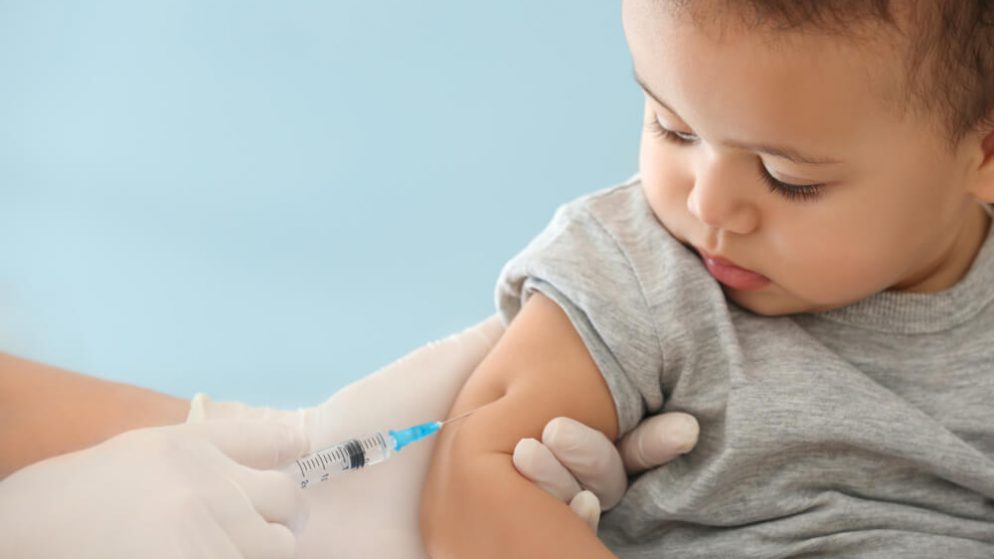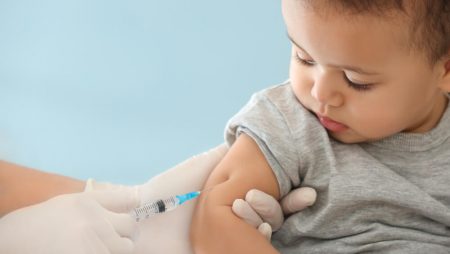



Get new exclusive access to healthcare business reports & breaking news




Moderna, Inc., a biotechnology company pioneering messenger RNA (mRNA) therapeutics and vaccines, announced April 28th it has submitted to the U.S. Food and Drug Administration a request for emergency use authorization (EUA) for its COVID-19 vaccine (mRNA-1273) in children 6 months to under 2 years and 2 years to under 6 years of age. Similar requests are underway with international regulatory authorities.
The requests are based on a 25 μg two-dose primary series of mRNA-1273.
“We are proud to share that we have initiated our EUA submission for authorization for our COVID-19 vaccine for young children,” said Stéphane Bancel, Chief Executive Officer of Moderna. “We believe mRNA-1273 will be able to safely protect these children against SARS-CoV-2, which is so important in our continued fight against COVID-19 and will be especially welcomed by parents and caregivers.”
Positive interim results from the Phase 2/3 KidCOVE study, announced on March 23, 2022, showed a robust neutralizing antibody response in the 6 month to under 6 years of age group after a two-dose primary series of mRNA-1273, along with a favorable safety profile.
The antibody titers in the pre-specified 6 month to 23 month and 2 years to under 6 years age sub-groups met the statistical criteria for similarity to the adults in the COVE study, which satisfied the primary objective of the study. The previously announced results included a supportive preliminary efficacy analysis on cases mostly collected during the Omicron wave, including home testing for COVID-19. When the analysis is limited only to cases confirmed positive for SARS-CoV-2 by central lab RT-PCR vaccine efficacy remained significant at 51% (95% CI: 21-69) for 6 months to <2 years and 37% (95% CI: 13-54) for 2 to <6 years. These efficacy estimates are similar to vaccine efficacy estimates in adults against Omicron after two doses of mRNA-1273.
The EUA submission for children ages 6 months to under 6 years was to be completed the following week. Moderna was also studying booster doses for all pediatric cohorts.
The KidCOVE study is being conducted in collaboration with the National Institute of Allergy and Infectious Diseases (NIAID), part of the National Institutes of Health (NIH) and the Biomedical Advanced Research and Development Authority (BARDA), part of the Office of the Assistant Secretary for Preparedness and Response at the U.S. Department of Health and Human Services. The ClinicalTrials.gov identifier is NCT04796896.
BARDA, part of ASPR within the U.S. HHS, is supporting the continued research and development of the Company’s COVID-19 vaccine development efforts with federal funding under contract no. 75A50120C00034. BARDA is reimbursing Moderna for 100 percent of the allowable costs incurred by the Company for conducting the program described in the BARDA contract.
On May 17th, the U.S. Food and Drug Administration amended the emergency use authorization (EUA) for the Pfizer-BioNTech COVID-19 Vaccine, authorizing the use of a single booster dose for administration to individuals 5 through 11 years of age at least five months after completion of a primary series with the Pfizer-BioNTech COVID-19 Vaccine.
The FDA is also awaiting data from Pfizer and BioNTech about the effectiveness of three doses of a low-dose version of their vaccine in children younger than age 5. Two doses proved ineffective, disappointing parents of young children eager to vaccinate their children.
While officials had hoped to make a vaccine available for this age group by the end of April, the FDA is now expecting to consider it in June once all the data have been submitted, according to an official familiar with the issue who is not authorized to speak publicly.
Finding solutions to protect the younger population has been a priority throughout the coronavirus pandemic, when measures have been put in place to ramp up testing and minimize the spread of the virus, although the Governor’s decision to relax the rules around sports for Illinois’ young population, assuming that it is done so within the guidelines, has been considered a positive move.
Steps to protect children have been taken even prior to the pandemic, when Illinois Governor J.B. Pritzker’s administration has stepped up a drive to ensure that vaccines are available to low-income children in an effort to improve vaccination rates in the state.
The Illinois Department of Healthcare and Family Services (HFS) and the Illinois Department of Public Health (IDPH) announced that they will provide vaccines for children covered under the Children’s Health Insurance Plan or CHIP, through the Vaccines For Children (VFC) program.
In over 10 years since its inception, Moderna has transformed from a research-stage company advancing programs in the field of messenger RNA (mRNA), to an enterprise with a diverse clinical portfolio of vaccines and therapeutics across seven modalities, a broad intellectual property portfolio in areas including mRNA and lipid nanoparticle formulation, and an integrated manufacturing plant that allows for rapid clinical and commercial production at scale. Moderna maintains alliances with a broad range of domestic and overseas government and commercial collaborators, which has allowed for the pursuit of both groundbreaking science and rapid scaling of manufacturing. Most recently, Moderna’s capabilities have come together to allow the authorized use and approval of one of the earliest and most effective vaccines against the COVID-19 pandemic.
Moderna’s mRNA platform builds on continuous advances in basic and applied mRNA science, delivery technology and manufacturing, and has allowed the development of therapeutics and vaccines for infectious diseases, immuno-oncology, rare diseases, cardiovascular diseases and auto-immune diseases. Moderna has been named a top biopharmaceutical employer by Science for the past seven years.